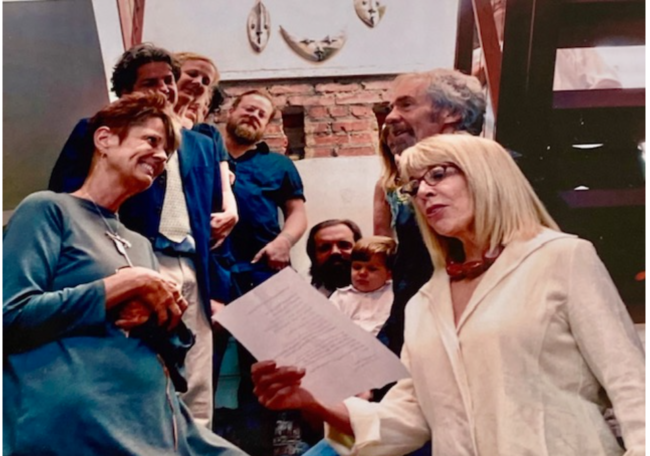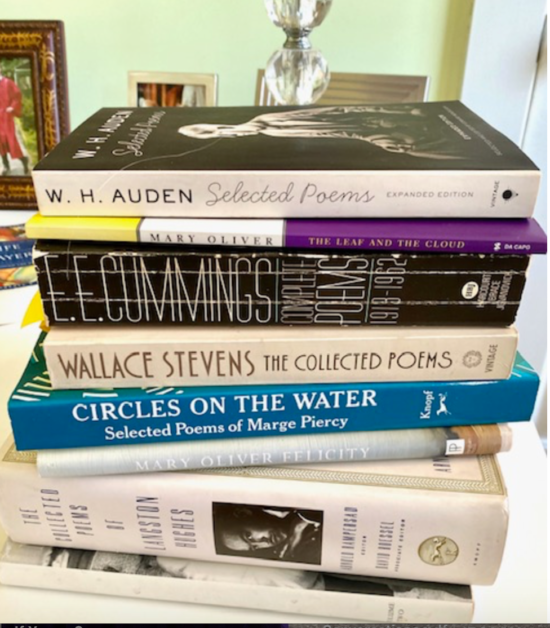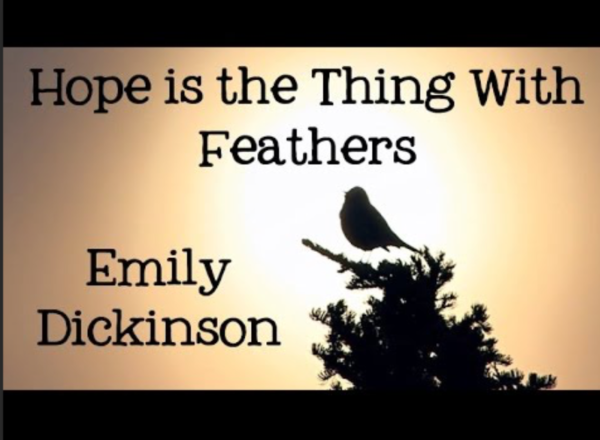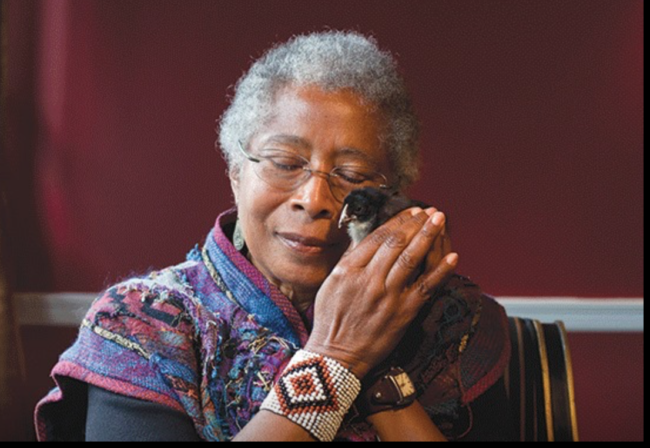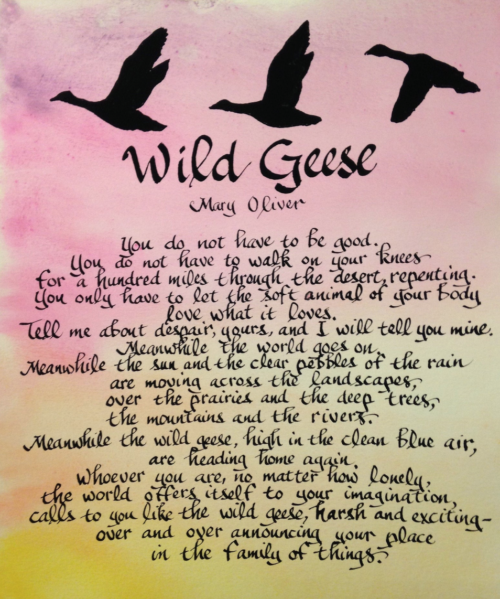Since April is National Poetry month and since this April we’re all frantic over COVID, what could be a better time to celebrate the healing powers of poetry?
If you’re like me you have favorite poets that you might consult when you’ve been asked to recite a poem at a wedding or funeral, but you probably don’t read poetry as regularly as you read fiction and your favorite periodicals.
For a long time I didn’t turn to poems with more frequency because of the way I was introduced to poetry. In middle school I was forced to memorize classic poems like Robert Frost’s “The Road Not Taken.” I remember standing in front of my 8thgrade class, woodenly reciting the poem, then sitting down and that was that. Frost’s poem wasn’t discussed for its beautiful imagery or spiritual meanings.
In my adult life I became acquainted with some wonderful poets who showed me how to appreciate poetry. Now that I have more time alone than I know what to do with, I’ve been returning to favorite poets like Mary Oliver, Emily Dickinson, Pablo Neruda and Auden for what they can teach me about my new upside down world.
I’m discovering anew the transformative powers of a beautiful poem, where everyday experiences or feelings become deeply soulful. When this happens poems become prayers, like in the opening of Emily Dickinson’s poem, “Hope is the Thing with Feathers,”
Hope is the thing with feathers
That perches in the soul
And sings the time without the wounds
And never stops-at all
Poems can embolden us, as in Alice Walker’s poem, “Calling All Grandmothers,”
We have to live
differently
or we
will die
in the same
old ways.
Therefore
I call on all Grand Mothers
everywhere
on the planet
to rise
and take your place
in the leadership
of the world
Mary Oliver writes with a beautiful simplicity, frequently evoking nature for guideposts. In “Wild Geese,” she reminds us that we are all valuable:
Whoever you are, no matter how lonely,
the world offers itself to your imagination,
calls to you like the wild geese, harsh and exciting —
over and over announcing your place
in the family of things.
Occasionally Oliver departs from revering nature to cast a challenge, like in the closing lines of, “What I Have Learned So Far,”
All summations have a beginning, all effect has a story, all kindness begins with the sown seed.
Thought bud towards radiance. The gospel of light is the crossroads of –indolence, or action.
Be ignited, or be gone.
Wendell Berry’s poems spin haunting visions for living bravely:
To go in the dark with a light is to know the light.
To know the dark, go dark. Go without sight,
and find that the dark, too, blooms and sings,
and is traveled by dark feet and dark wings.
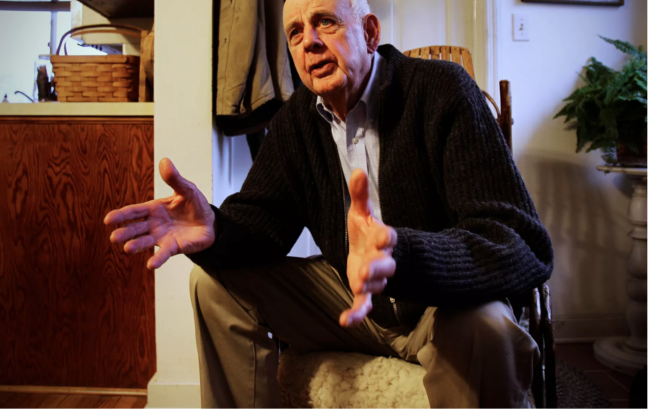
Wendell Berry at his home in Port Royal, Kentucky, 2011. He doesn’t own a computer, writing in pencil
W. H. Auden is remembered for his poem, “September 1, 1939,” written on the outbreak of World War ll, where Auden despairs over the coming war and the ways society will be forever altered. After 9/11 Auden’s poem was evoked for its relevance to a fresh historic trauma, and once again it becomes relevant as we cope with the coronavirus. “September 1, 1939,” ends on a note, where life is affirmed:
Defenseless under the night
Our world in stupor lies;
Yes, dotted everywhere,
Ironic points of light
Flash out wherever the Just
Exchange their messages;
May I, composed like them
Beleaguered by the same
Negation and despair
Show an affirming flame.
